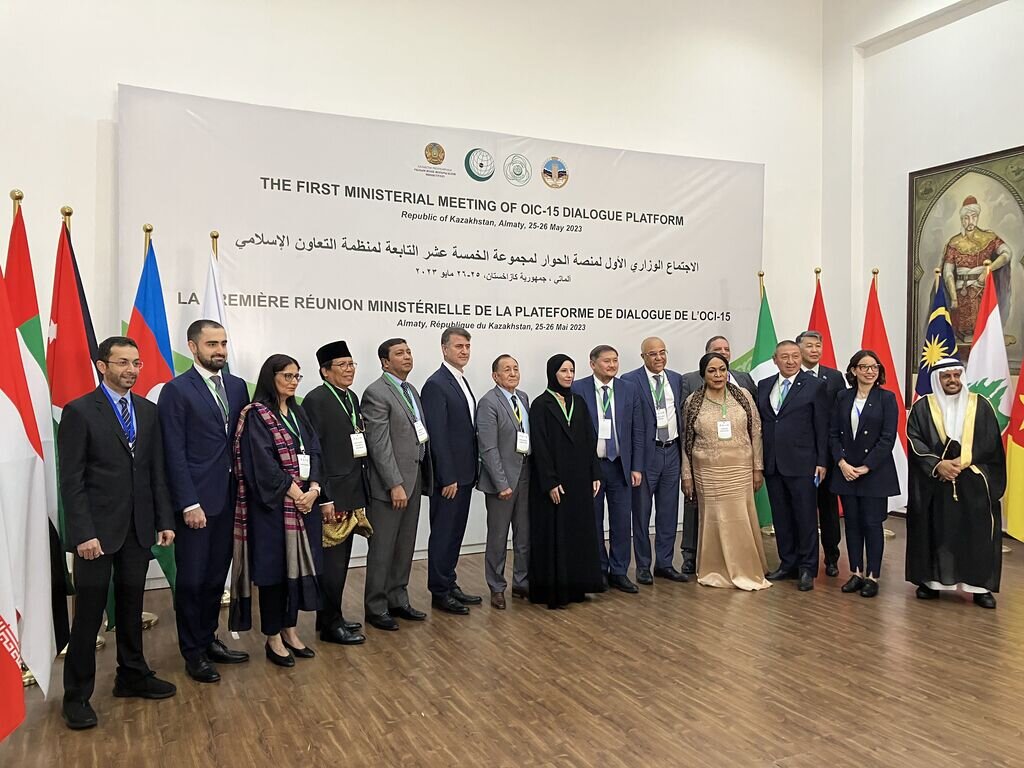Iran ready to share technological expertise with Islamic countries

TEHRAN – The deputy science minister has said Iran is ready to share its technological expertise with other Islamic countries.
Science and technology should be applied in order to create world peace and human justice, and Muslim countries can bring peace and progress not only to the Muslim nations but also to human beings with unity and empathy, Vahid Haddadi-Asl said, IRNA reported.
He made the remarks at the 1st Ministerial Meeting of the Organization of Islamic Cooperation Dialogue Platform (OIC-15) which was held in Almaty, Kazakhstan on May 25-26.
“Over the past years, despite the cruel sanctions imposed by the global arrogance against the Islamic Republic of Iran, we have seen significant progress in the fields of education, research, and technology, which is a sign of reliance on Iranian scholars and scientists. We are always ready to share our technological expertise with other Islamic countries.”
The Islamic Republic of Iran considers it its duty to support science and technology diplomacy between Islamic countries, through conducting joint scientific projects in areas needed by Islamic countries, he highlighted.
The goal can be achieved through creating innovation zones and a union of science and technology parks of Islamic countries, activating the union of universities of Islamic countries, and also exchanging of professors and students, the official noted.
The Organization of Islamic Cooperation is the second largest organization after the United Nations with a membership of 57 states spread over four continents.
The Organization is the collective voice of the Muslim world. It endeavors to safeguard and protect the interests of the Muslim world in the spirit of promoting international peace and harmony among various people of the world.
The Organization was established upon a decision of the historical summit which took place in Rabat, Kingdom of Morocco on 25 September 1969.
The Organization has consultative and cooperative relations with the UN and other inter-governmental organizations to protect the vital interests of Muslims and to work for the settlement of conflicts and disputes involving Member States.
In July 2022, Peyman Salehi, the deputy science minister, said despite U.S. sanctions, the international activities of Iranian scientists have increased year by year so that more than 35 percent of Iranian articles in Scopus have been multi-national projects.
Science diplomacy is the use of scientific collaborations among nations to address common problems and build constructive international partnerships.
It is a form of new diplomacy and has become an umbrella term to describe a number of formal or informal technical, research-based, academic, or engineering exchanges, within the general field of international relations.
The national budget bill for the current Iranian calendar year 1402, which started on March 21, has earmarked about 37 trillion rials ($75 million) for science and technology.
The bill increased the budget by 35 percent compared to the past year’s budget, ISNA reported.
The Vice Presidency for Science and Technology was formed in 2006 with the aim of creating an environment for supporting knowledge-based companies and providing the ground for the development of technological industries.
A total of 8,034 knowledge-based companies have so far been established across the country.
Leader of the Islamic Revolution Ayatollah Seyyed Ali Khamenei designated the current Iranian calendar year as the year of “Production: Knowledge-Based and Job-Creating.”
Over the past couple of years, the concept of a ‘knowledge-based company’ has changed to a ‘knowledge-based society’, meaning that supporting knowledge-based companies will lead to many social and economic advantages for the public.
The Leader reemphasized the importance of boosting domestic production, as he had done in past years, saying the reason he placed so much emphasis on production was “because it boosts economic growth, it creates employment, it reduces inflation, it increases per capita income and it improves public welfare.”
To this end, the Vice Presidency for Science and Technology has executed and supported several projects toward the goal of boosting knowledge-based production.
Moreover, the development of an innovation ecosystem is on the agenda, according to which 65 houses of innovation have been set up across the country.
The Innovation and Prosperity Fund has paid a total of 240 trillion rials (nearly $500 million) to support knowledge-based companies over the [Iranian calendar] year 1400 (March 2021-March 2022).
MG
